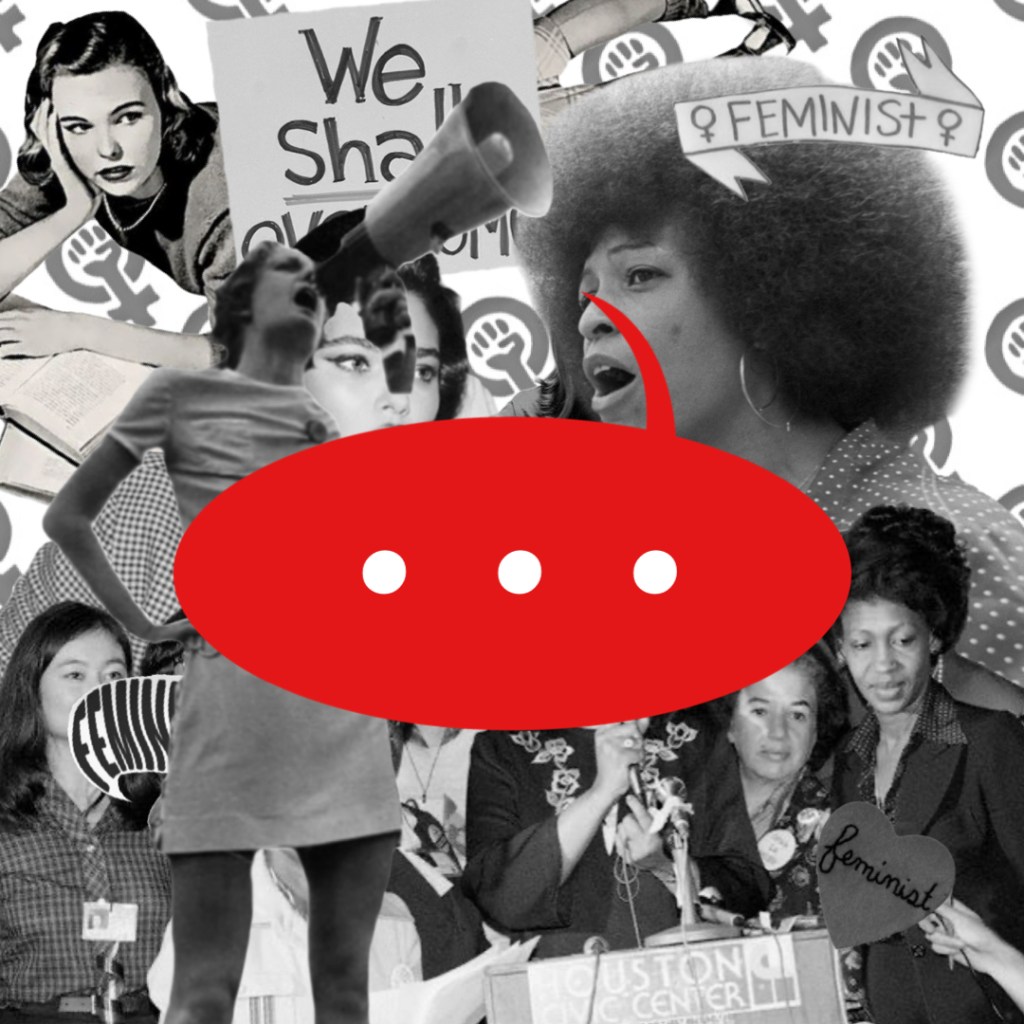Megan Foulk discusses the stigma associated with the label of ‘feminism’, questioning why exactly it is that people are hesitant to identify themselves as feminists.
Sat punching numbers into boxes at my administration job this summer, I found myself surrounded by men. A small construction company office, it was impossible not to engage in some playful teasing and I frequently received chiding comments for my man-bashing. ‘Come on, we’re not all bad’, ‘don’t tarnish us all with the same brush’, they would argue, and they’re right, of course. But when I asked my male counterparts whether they would ‘call themselves a feminist?’ one replied ‘I don’t like labels’.
Extending this question to my friends and family, I conducted a poll asking the following: ‘if you were in a room full of people and somebody asked everyone who considered themselves a feminist to stand up, would you stand up or would you stay sat down?’ The results concluded a 50/50 split, but when I followed by asking one friend (who voted to remain seated) ‘what would you do if everybody was blindfolded?’ they replied, ‘well, then I would stand up.’ What both these responses suggest is not a disengagement from the feminist movement itself, but rather, a staunch aversion to the word feminism.
Whether it was Emily Davison’s throwing of herself at the King’s horse in Epsom 1913, or Rush Limbaugh’s careless introduction of the demonising term ‘feminazi’ on his radio show in 1992, plenty of discourse exists to perpetuate the image of the man-hating, bra-burning radical that represents a tiny proportion of the feminist movement. Referred to as ‘monsters in bloomers’ in the late 19th century, even today, years later, declaring yourself a feminist will likely encourage some eye rolling and comedic inquiries about the length of your armpit hair. Burdened by such fierce stereotypes, women are being dissuaded from declaring their alignment to the movement at all.

An easy to comprehend analogy for fans of Victorian gothic, or perhaps an unwelcome reminder for haters of GCSE English, Edley and Wetherell’s Jekyll and Hyde model (Jekyll and Hyde: Men’s constructions of feminism and feminists) neatly explains how the feminist stereotype attacks the feminist movement. Following a number of interviews, the pair concluded that when asked what a feminist looks like, typically two images come to mind: the liberal feminist, the ‘rational and sane’ Dr Jekyll, who poses no threat to society, and the extremist feminist, the ‘monstrous, ugly and unfeminine’, Mr Hyde, who ‘demands equality be achieved more quickly than what society has in mind.’ Fearing they be pigeon-holed as Mr Hyde, rather than Dr Jekyll, and thus willingly subjecting themselves for public ridicule, it is no surprise many women feel it is easier to abstain from the feminist label entirely.
Perhaps most striking to me about the ‘Mr Hyde’ persona that so many of us seem deeply troubled by, is the fear that labelling oneself as a feminist denies the possibility of also being feminine. Think of ‘Weird Barbie’, Kate McKinnon’s ‘high-heel vs Birkenstock’ ultimatum. It is inconceivable that Margot Robbie, ‘Stereotypical Barbie’ might possibly be able to spearhead a revolution in four-inch heels, but why? Believing in equality for women and owning multiple pairs of Louboutin heels are not mutually exclusive. Just as wearing leather buckled sandals doesn’t mean you are an avid consumer of Simone De Beauvoir novels. Defined by the OED as ‘advocacy of equality of the sexes and establishment of the political, social and economic rights of the female sex’, feminism is not something anybody should be afraid or ashamed of, neither is it a cause that requires you to wear a petticoat and a wide brimmed hat.
Whilst it would be impossible to erase an entire history’s worth of stereotypes overnight, perhaps a good place to start reclaiming the word ‘feminism’ is to consider what it means to you. If you feel you would remain seated in the aforementioned poll, ask yourself what is stopping you from standing up? Do you disagree with the views of the feminist movement, or are you afraid of how people will view you? Public perception is a perfectly rational fear, but it shouldn’t prevent you standing up for something you believe in.
